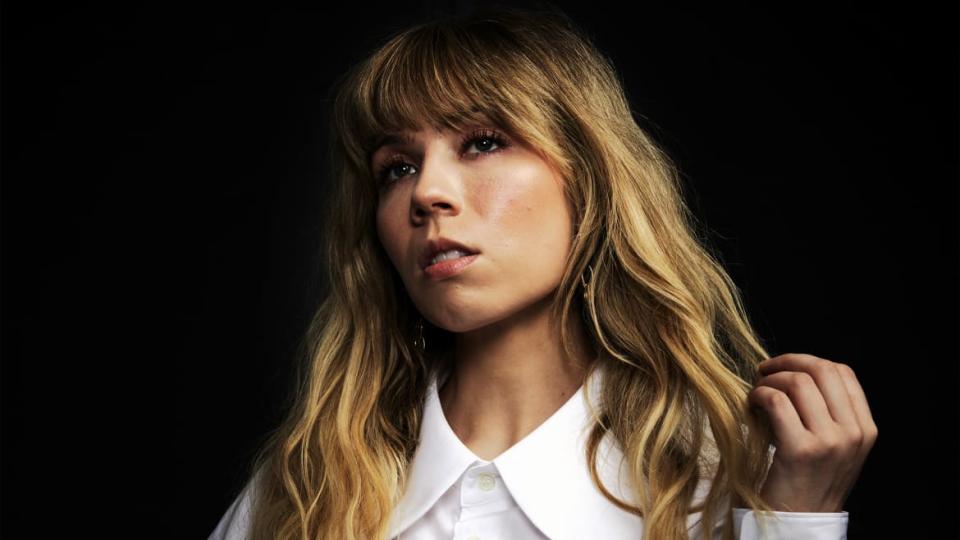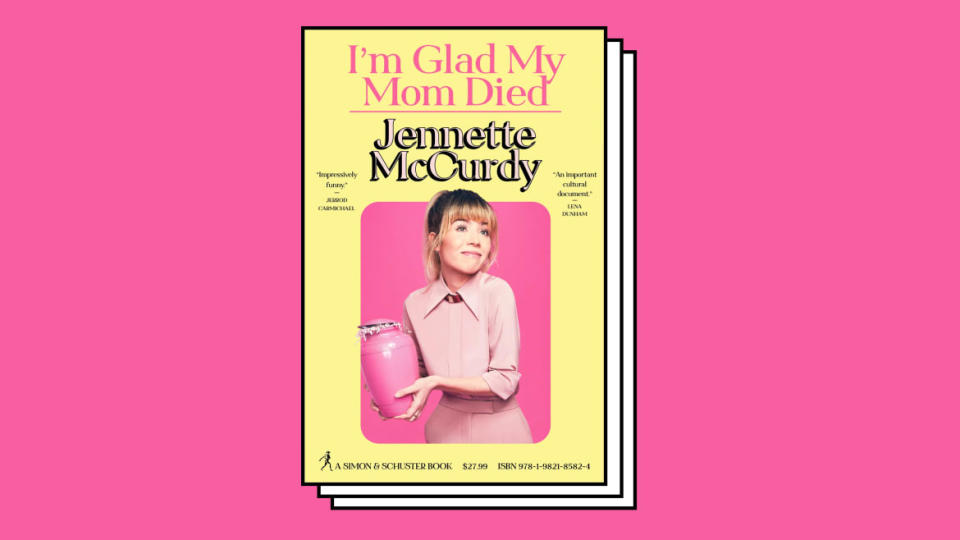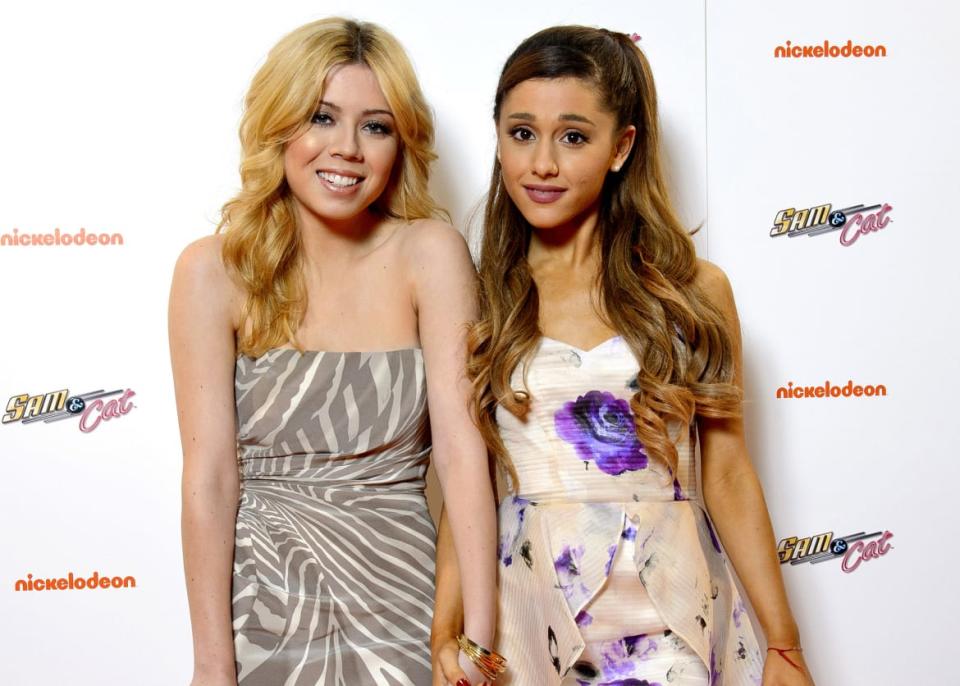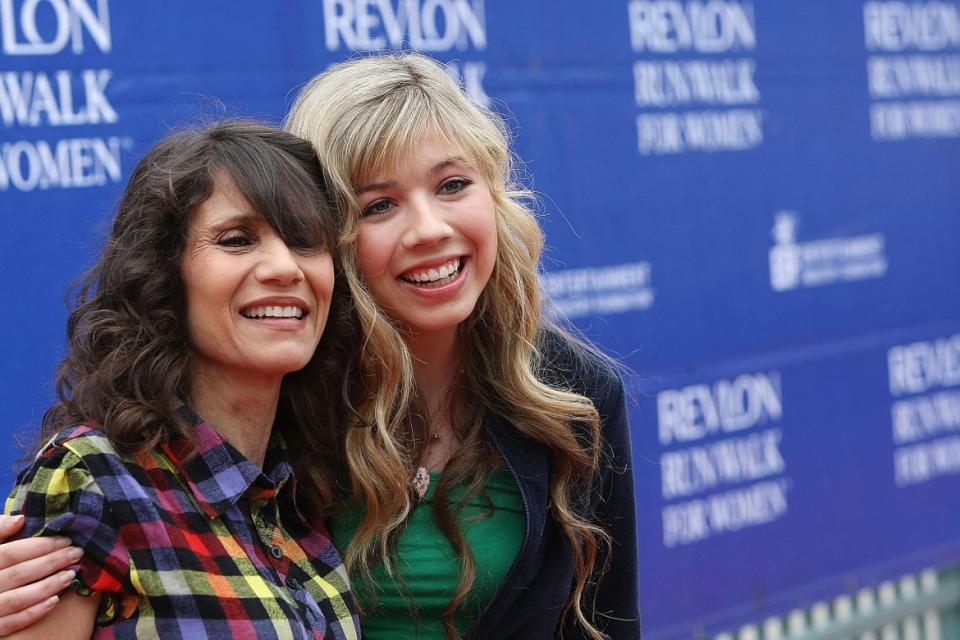Jennette McCurdy’s ‘Child Star’ Memoir Isn’t a Juicy Nickelodeon Tell-All. It’s Better.

On August 9, the day her much-hyped memoir was released, Jennette McCurdy participated in a Q&A session in Brooklyn, NY.
Much of the crowd was there for one purpose: They loved the actress-turned-author on Nickelodeon shows iCarly and Sam and Cat, both of which aired nearly a decade ago or more now. McCurdy was a nationally known tween star.
The early press around I’m Glad My Mom Died, her provocatively titled life story, has largely leaned into her previous career. Excerpts have drawn specifically from the memoir’s vignettes about working at Nickelodeon, with much of the news seizing on McCurdy’s anecdotes about “the Creator,” a clear code name for controversial TV producer Dan Schneider.

In the book, McCurdy writes that Schneider encouraged her to take a sip of his whiskey-spiked coffee, and that he once gave her a back massage—both when she was 18 years old. Mostly, he was emotionally abusive on set, until he was banished to “a small, cave-like room … surrounded by piles of cold cuts—his favorite snack—and Kids’ Choice Awards blimps, his most cherished life accomplishment.”
These moments—and one in which McCurdy rejects Nickelodeon’s offer of $300,000 in exchange for her silence about Schneider’s and others’ on-set behavior—have been trumpeted as juicy child-star scandals in headlines. But in Brooklyn, at that Q&A, McCurdy spoke plainly of her disdain for that attention.
“I feel annoyed, I guess, when people ask about [the Nickelodeon moments],” she told moderator Susan Burton (a This American Life producer). “Because I think the book is so much more significant than that. What I’m talking about, and the emotional arc that I’m exploring with my mom—the things that are most important about this book can’t be reduced to any sort of headline. For there to be these headlines of ‘Nickelodeon,’ I’m like, ‘You’re missing the point, guys.’”
And she’s right: These headlines are missing the point. This is how the press works, of course: grab the grabbiest bits and signal-boost them. It’s why every “salacious” anecdote about McCurdy’s career, like her complicated relationships with the Creator and Sam and Cat co-star Ariana Grande, has already come out in the pre-release promotion. Excerpting these in advance is a classic, strategic publishing move. Even if you didn’t love iCarly, you’ll want to read about the alleged abuses of a Nickelodeon producer or dirt on a superstar like Grande.
Those people will likely be disappointed by how few of those “reveals” or “bombshells” I’m Glad My Mom Died includes. The book is light on child star drama—it leans way, way heavier into personal tragedies and lifelong trauma. The result is a magnificently vulnerable, visceral work.
What I’m Glad My Mom Died focuses on is the backstory of that title. McCurdy isn’t relieved that her mother died of stage-four breast cancer for Nickelodeon-related reasons; her mother was the one who pushed her into acting, but that wasn’t the cause of their co-dependent, toxic relationship.

Jennette McCurdy and Ariana Grande at the UK premiere of Sam & Cat.
Here’s some of the book’s most memorable moments: McCurdy’s mom waved a knife at her dad, in front of the kids, when he came home late. She discouraged McCurdy from writing because “writers dress frumpy and get fat.” She gave her daughter showers until she was 16, including sometimes with her older brother, in order to “save time.” These showers included invasive breast and vaginal exams, to check for cancerous lumps. A bunk bed that McCurdy bought for herself with her acting money became yet another repository for her mom’s hoarding behaviors, forcing McCurdy to return to her gymnastics-mat bed on the floor. (She and her three brothers slept and ate on mats, because there was no room for them on any actual beds.)
Most evocative, for better or often-times worse, are the vignettes in which McCurdy describes her eating disorders. The most damage McCurdy’s mother dealt was to her daughter’s body image. McCurdy writes in detail about her mother’s designs on keeping her daughter life-threateningly thin: She’s 11 when she starts restricting her calories, at her mom’s behest. They celebrate when McCurdy drops three clothing sizes. They each weigh themselves several times a day. One of the most painful moments comes when a mom at dance class expresses dismay about McCurdy’s fast-dropping weight. Her mother cuts the other woman off and drives away.
“What’s anorexia?” McCurdy asks her mom. “Oh, don’t worry about it, Angel,” she replies. “People are just being dramatic.” They go home and eat a single sugar-free Popsicle, one of the only foods they allow themselves to eat.
Jennette McCurdy Reignites Disturbing Dan Schneider, Nickelodeon Allegations in Explosive Memoir
All the details about weight and weight loss can be painful to read for myriad reasons. These stories are relatable, disturbing, and triggering, usually all at once. Specifics on how much weight McCurdy was losing, what she was eating to lose that weight, what size clothing she wore, and, later, what she was binge-eating, and how she made herself throw it up are all difficult to get through.
She’s the one who suffered these traumas, and it’s her story to tell—unless we’ve got similar stories of our own. Many women of all ages did and do. But it’s clear that the treatment McCurdy received for her trauma and eating disorders, which involve holding yourself accountable for the specific things you have done, or processing in detail what’s been done to you, have informed how she’s written this book.
One story she tells is when she’s in her late teens: She secretly takes a trip with her (much-older) boyfriend and is caught by paparazzi. Her mother sends a shockingly cruel email. For lying about who she was with—and eating actual food—she calls her “CONNIVING, EVIL. You look pudgier too. It’s clear you’re EATING YOUR GUILT.”

Jennette McCurdy with mother in 2009.
Both women’s eating disorders are so fierce that, when her mother is on her deathbed, they’re both still so fixated on weight and calories. McCurdy tearfully tells her mom how little she weighs with pride, in the hopes that it will wake her from her coma. When it doesn’t, McCurdy goes to Burger King and binges. Her mother wakes up soon thereafter, and immediately chastises her for eating a Whopper. (“Lotta grams of fat in a Whopper.”)
After she dies, when McCurdy is 21, she spirals into bulimic and alcoholic behaviors; she throws up until her throat bleeds, as a response to the mere suggestion that her mother was abusive. She throws up everywhere she goes. She loses a tooth in an airplane bathroom. She throws up on birthdays, dates, and trips to Disneyland. (One of the non-bulimia-related stories involves her boyfriend, whose schizophrenia makes him think he’s Jesus Christ. It’s both more and less amusing than it sounds.) By the end of the book, when she enters recovery, it’s clear that the battle was incredibly hard-won.
So, no: If you want those behind-the-scenes tales of sexual harassment, underage drug use, or Dan Schneider’s alleged foot fetish, you won’t find much here. You also won’t even find a single detail about McCurdy’s biggest scandal, when shirtless photos of her surfaced online and she blamed then-boyfriend, NBA player Andre Drummond. He’s not named at all, although she mentions someone who might be him once.
But you will get an exhaustive account of how eating disorders fester under the supportive eye of a fucked-up parent. You will totally understand why she’s glad her mom died, even if you can never understand that feeling yourself. You will probably want to immediately listen to McCurdy’s podcast, Empty Inside, where she talks about a lot of these same mental health issues with celebrity guests. You will fall back in love with Jennette McCurdy: She’s talented, brave, darkly funny, and incredibly strong.
Get the Daily Beast's biggest scoops and scandals delivered right to your inbox. Sign up now.
Stay informed and gain unlimited access to the Daily Beast's unmatched reporting. Subscribe now.

 money
money 